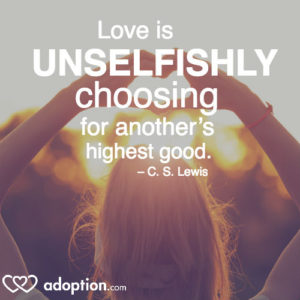April 06, 2016
What will I get asked during my home study?
The home study is a very big and very anticipated part of the adoption process. It involves a great deal of paperwork, extensive background checks, and lots and lots of questions. Understandably, many adoptive parents-to-be are nervous about the home study, and we get it! It’s not every day that you are questioned to within an inch of your life regarding something you want so much that will change your life forever.
To help ease some fears, and get you thinking, here is a sample of questions and concepts that may come up during your home study process.
These questions won’t necessarily be asked verbatim, but most of it will be covered in some way. Regardless, all of them are valuable thinking and discussion points for yourself and/or your partner as you prepare to begin your adoption process.
Who are you? What’s your background? What are your likes and dislikes? What makes you YOU?
Why do you want to be a parent? Why do you want to be an adoptive parent?
What was your childhood like? What kind of household did you grow up in? What did you like best about your childhood? How did it influence you to want to become the parent you’re aiming to be? Parents, siblings…what was/is your relationship with them like?
How about your relationships now?
What is your marriage/relationship/partnership like?
If you’re single, what kind of support system to have? And even if you’re not single, what kind of support system do you have?
Conflict and resolution—how is that solved in your relationship? How do you solve that in your own life? How was that solved when you were a child? How do you hope to solve it with your child?
How do you want to raise your child? What sorts of resources—financial and otherwise—do you have in place to help?
Think about yourself as a parent—what kind of parent do you want to be? What do you think about discipline? In what kind of home environment do you want to raise your child?
What kind of child would you like to adopt? Do you have any expectations about race or gender? If you do adopt transracially, have you thought about how you’ll handle comments or questions? Have you thought about how you’ll bring your child’s culture in your own?
Although you may feel put on the stop, the number one thing to remember is to be honest. In addition to being part of your home study, many of these questions will arise again as part of your match process—your honesty and candidness will help match you with the birth mother that’s right for you. This is a valuable exercise for considering what you want out of a family, parenthood, your adoption, as well as your thoughts, plans, and expectations.


